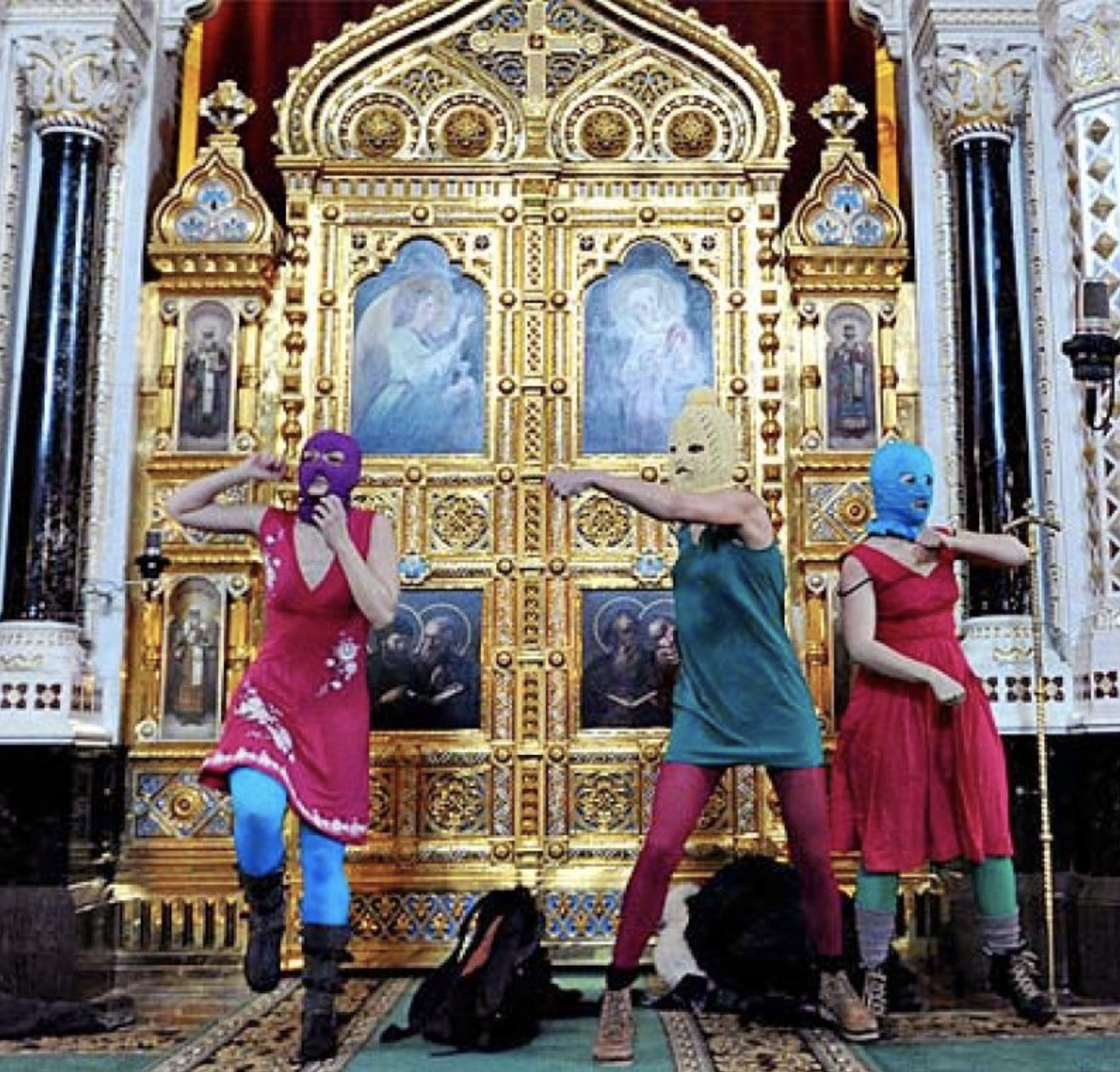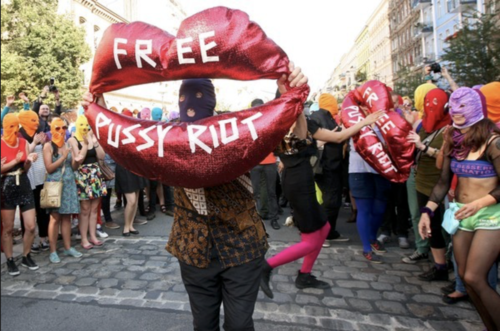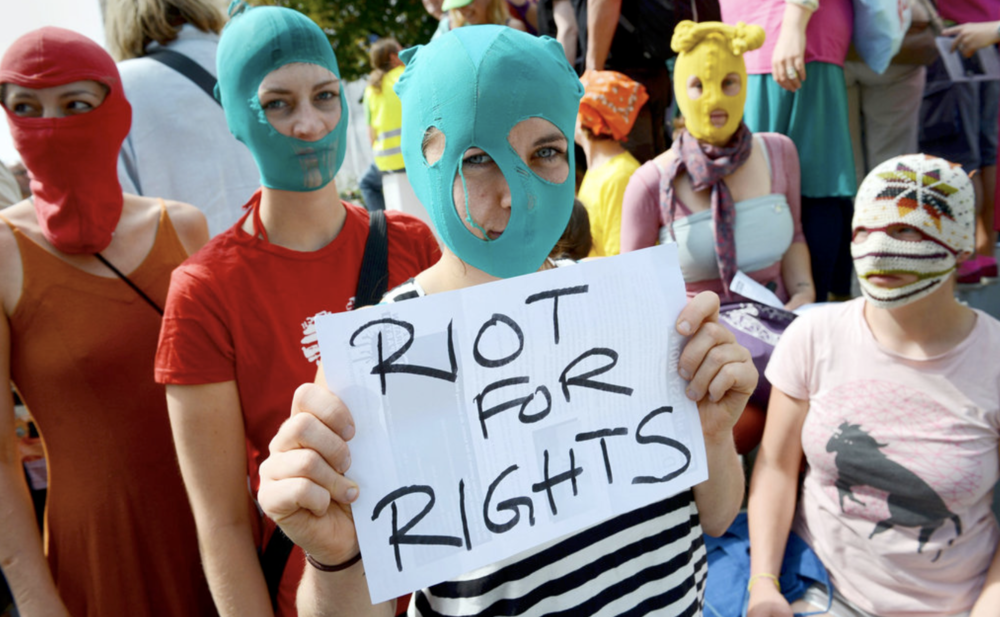
Pussy Grabs Back?
Paulina Berczynski
Pussy Riot is a Russian feminist protest punk rock group based in Moscow. Founded in August 2011, the collective staged unauthorized provocative guerrilla performances in public places, often wearing Riot Grrrl inspired knit ski masks. Pussy Riot's themes included feminism, LGBT rights, and opposition to Russian President Vladimir Putin, whom they considered to be a dictator.

The infamous 2012 Pussy Riot performance
Pussy Riot gained global notoriety when five members of the group staged a performance/ protest inside Moscow’s Cathedral of Christ the Savior in February 2012, directed at the Orthodox Church leaders’ support for Putin's election campaign, and Putin’s related agenda of restricting abortion rights. The group was also committed to highlighting economic inequality, which they considered a notable yet swept-under-the-rug feature of both Russian and American society. According to Elianna Kan in the American Reader, Pussy Riot's Russian brand of feminism focused on repression by authoritarian regimes, which created idealized ideas of sexism, sex and family life. The group's actions were condemned as sacrilegious by the Orthodox clergy and eventually stopped by church security officials. Members of the group were held without bail and sentenced to a two year prison sentence.
The tragic (likely Russian-aided) election of the fascist, sexist, bigoted, anti-progressive Trump regime in the United States has brought a resurgence of Pussy-activism in America, largely symbolized by Pussy costumes at protests, the slogan “pussy grabs back”, and the thousands of problematic knitted pussy hats from the Women’s March in 2017. Much has been written about the failure of these forms to represent intersectional identities within the women’s rights movement. Though born of feminist ideology and employing traditional women’s craft practices, ultimately for many it felt like wearing a hat or donning a pussy-outfit was not going to change the world.


The recent retirement of Supreme Court Justice Kennedy has brought the realization that religious zealots and the anti-choice movement will seize upon the doubtless more-conservative bent of the new Supreme Court to chip away at abortion access in the US. To any female-identified person living under patriarchy, the goal of all this religious and right-wing dialogue around abortion is transparent - to criminalize female sexuality outside of sanctioned relationships, and to control women through forced reproduction, reducing our dreams, desires and the scope of our possibilities to the role of incubator and dependent (be that dependent on a male parter or on the state). It is imperative that women choose if and when they decide to be parents, and decide the size of their families, birthed or chosen, based on their specific life circumstances.
The current authoritarian regime, elected partly for their idealized ideas of sexism and family life, plans to strip women of these critical life choices in the immediate future. Those on the ever-growing low-income end of the economic spectrum will be hit the hardest, and with limited support from the state for kids and parents after birth. We seem to have come full circle here, with America in a full-on Pussy Riot moment. I hope the next waves of action in this socio-political reality can be less about the optics of gender and more about real support and respect for self-determination by all people.
